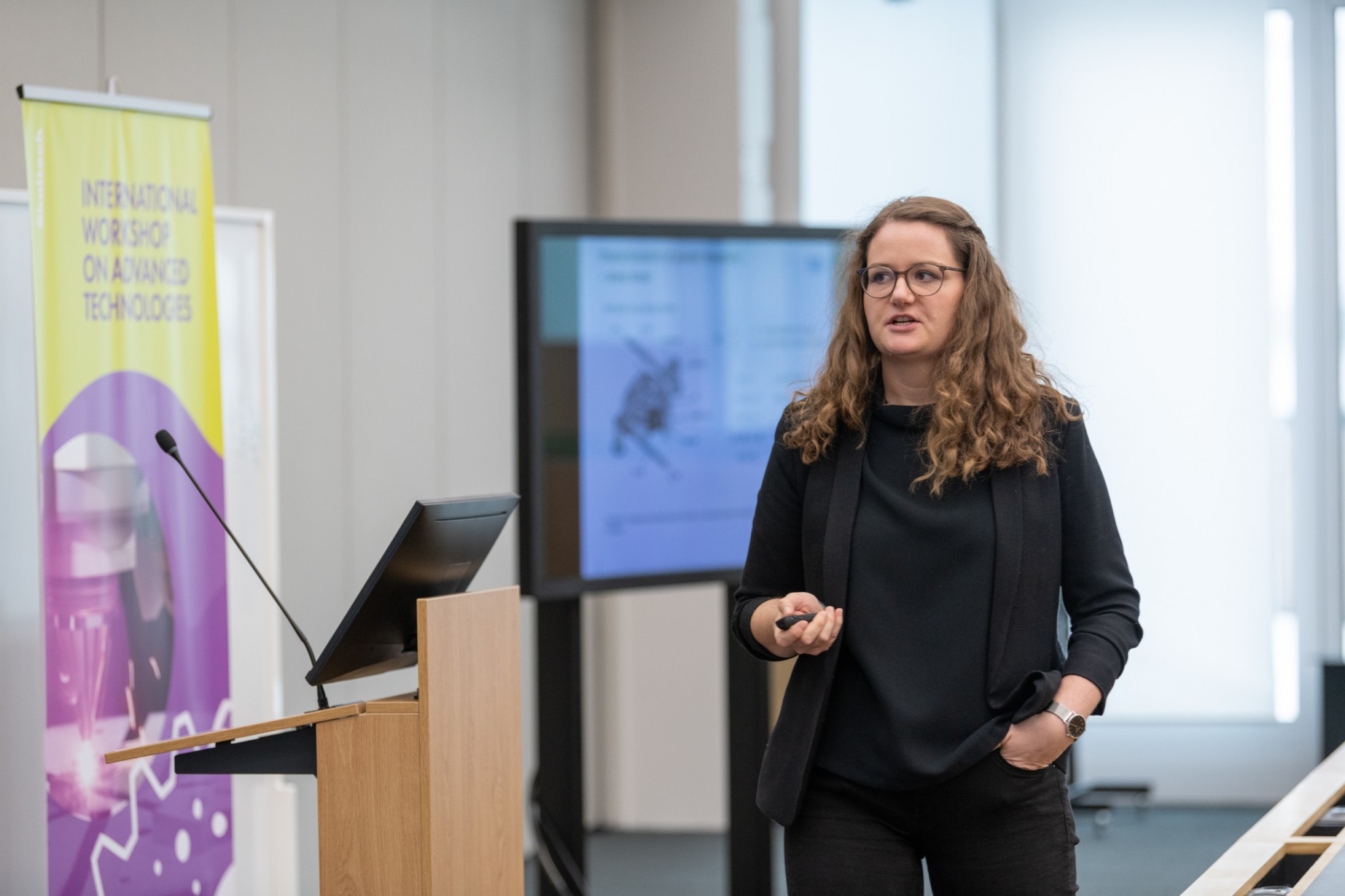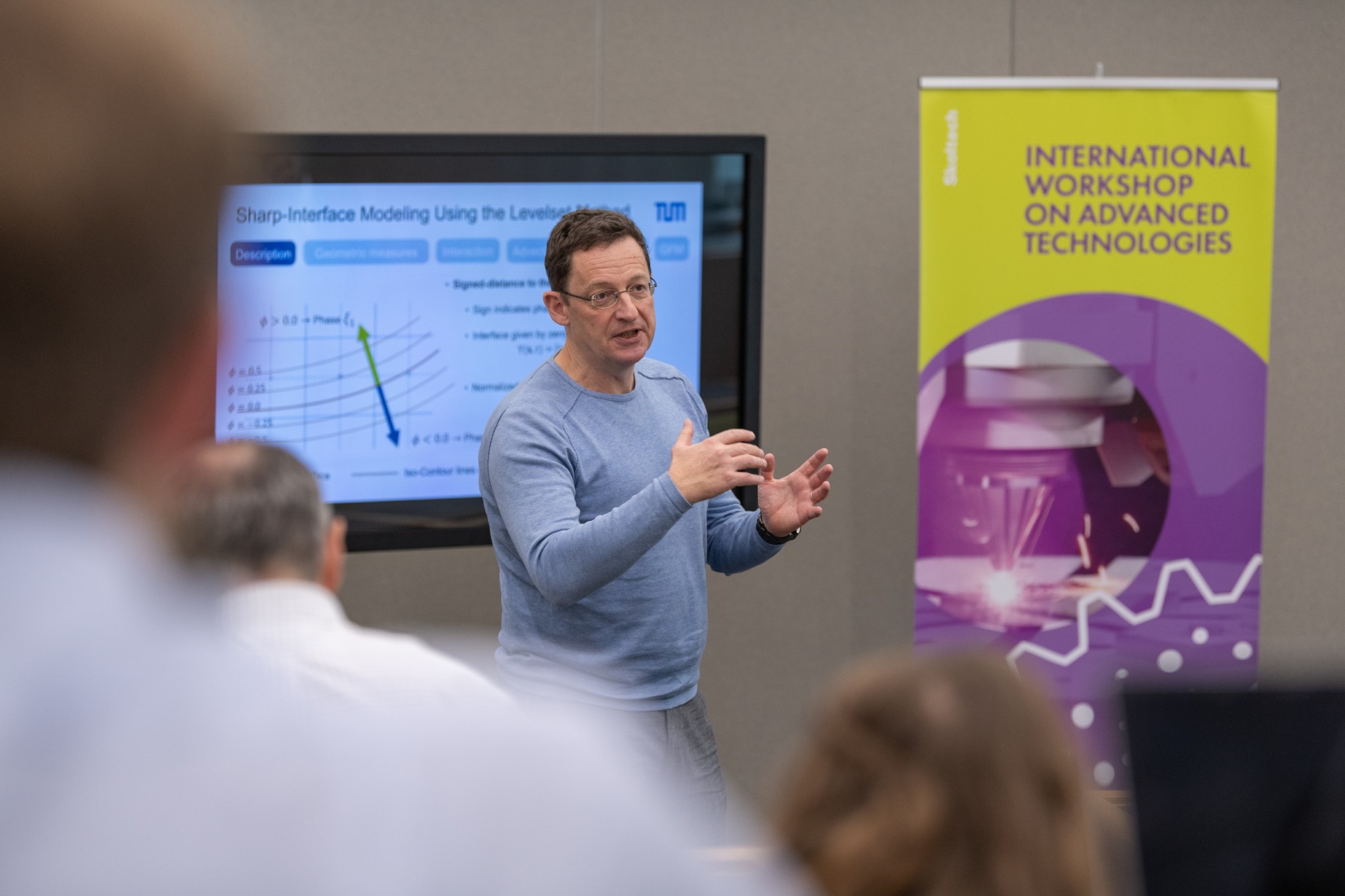The International Workshop on Additive Technologies, organized by Iskander Akhatov (Director of the Center for Design, Manufacturing and Materials), took place on December 5, 2019, with the aim of attracting world-class experts in the field of mechanics, new production technologies and materials to present and discuss topical scientific problems. The workshop also aimed at grabbing the attention of a wider audience, thus building a positive image of Skoltech in the international community as a platform for innovative ideas and scientific knowledge.
The event took place Skoltech’s new Eastern Ring campus on December 5-6. The eight presentations covered a broad range of issues related to current problems in the field of mechanics and advanced manufacturing technologies, generating input from experts on these issues. The topics such were high entropy alloys, additive nano-manufacturing and laser printing, sharp-interface modeling of shock-interface interaction, etc. Among the presenters were two professors from the Technical University of Munich (TUM) – Dr. Katrin Wudy and Dr. Nikolaus A. Adams.
Dr. Wudy is a new professor at TUM, working directly in the field of laser-based additive manufacturing. She has worked in it for ten years and presenting at the International Workshop on Additive Technologies represented her first visit to Skoltech. A key issue for her field, which she raised, is the difficulty of getting it into industry; that is, setting up automation, making processors more reliable, and achieving consistency in part properties.
“We would like to get a fundamental understanding of the processes and in cooperating with Skoltech we can simulate this and predict part properties using a digital twin. I am in the experimental part, and Professor Adams works in the modeling part. We want to connect this with Skoltech’s strengths,” said Dr. Wudy.
“Our main focus in additive technologies is on the metal materials side and on developing a fundamental numerical model for a detailed and intentionally coarse-grained simulation of the core process. Usually our level of prediction is on the macroscopic level where we do not see the effect on individual molecules. Where Skoltech comes in is that it has a strong experience in modeling at a higher resolution, and it provides part of the detailed physical models on the molecular level . They will contribute to projects dealing with non-equilibrium thermodynamics and alternative materials. In Munich, we are focusing on metal in the framework of this cooperation; our concept is that Skoltech will create the bridges to eventually use this digital twin for other materials such as ceramics,” – Dr. Nikolaus A. Adams (TUM).
Skoltech and the TUM signed a cooperation agreement earlier this year, providing for extensive cooperation in areas such as photonics, quantum computing, robotics, life sciences and others. Cooperation between the two universities has already been ongoing for nearly three years and President Alexander Kuleshov is due to visit TUM later this month.
Contact information:
Skoltech Communications
+7 (495) 280 14 81


